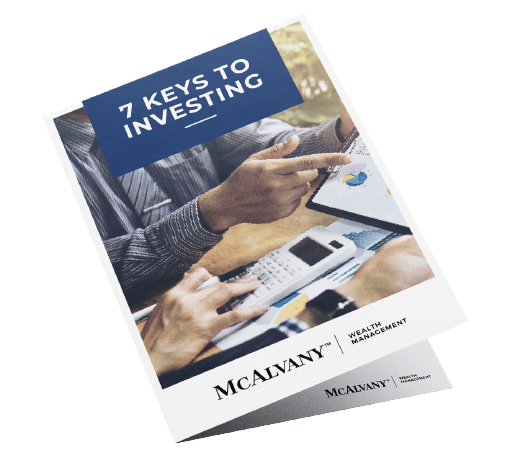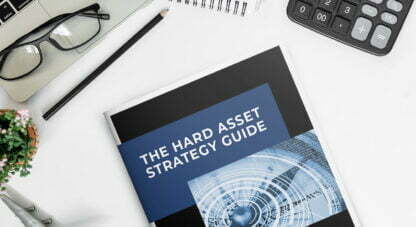There’s no one-size-fits-all approach to investing. The best way to find your own personal fit is to consider your own investing style, risk tolerance, and time horizon.
However, there are a few key principles you can follow, no matter your own personal goals.
You need to look at your finances holistically to see the full picture of where you are and where you want to be.
1. Reduce Debt Where Possible
Carrying unnecessary debt can severely limit your ability to build a budget that takes care of your needs, goals, and your future. Reducing debt where possible gives you more control over your financial choices, your savings, and the ability to capitalize on investment opportunities.
While some debt may feel unavoidable, much can be paid off. If you cannot pay down the debt you already have, do your best to not add any more. Wherever debt must be maintained, make sure your interest rates are fixed.
2. Manage Your Cash Appropriately
You want to have enough cash on hand to take care of your everyday expenses, but not so much that inflation will eat away at it over time.
The rule of thumb is to have a minimum of three to six months’ living expenses held in cash at all times. In case of a natural disaster or unforeseen event, you’ll need some cash for everyday expenses until the lights come back on and life gets more or less back to normal. Beyond that, any substantial cash position should be ready to go to work for you.
3. Monitor the Financial Condition of Your Bank or Insurance Company
Banks regularly call on the government (i.e., taxpayers) to bail them out when they make too many loans to people, companies, or countries that can’t pay them back. In fact, they’ve done that so many times that governments are losing their ability to bail out the banks, so some governments now require depositors to take a loss before taxpayers.
So far in 2023, it has not been a good year for the banking industry. Three major US banks have failed, holding a total of $532 BILLION in assets. The total assets in these three failures are greater than the combined assets of the 25 banks that failed in 2008.
Smaller and mid-sized banks are currently facing liquidity challenges, while their larger counterparts are consolidating power and influence in the industry.
Is your bank on shaky ground? It’s important to know how your bank is rated and to have a plan to move your money to a safer institution.
4. Approach Investment Markets With The Caution They Deserve
The stock market is a tool to be used for investment gain. Your savings are equally important, prudent assets redesigned with high-risk investments. Let the stock market be the growth vehicle it is meant to be, and allow only a measured percentage of your assets to chase those gains.
For an in-depth discussion of this aspect of investing, see our guide on the Investment Triangle Strategy, which McAlvany Precious Metals uses to manage its own funds. This is an excellent way to give your portfolio versatility, stability, strength, safety, and growth.
5. Give Your Portfolio Purpose
The old adage of “failing to create a plan is planning to fail,” couldn’t be more true when it comes to your investing choices. Creating long-term financial goals helps you lay out a strategy and make wise decisions on your investing journey. Long-term goals lead to long-term relationships with enduring values: Truth, honesty, integrity, and fair dealing.
When you take time to give your portfolio a strong purpose, you can outlast the short-term focused Wall Street and algorithmic-based traders. This view creates a portfolio that helps not only you, but your children, their children, and their children after them. It’s a marathon, not a sprint. Set up your investment goals for success with a clear purpose for your portfolio. Getting matched with an advisor who understands your portfolio’s purpose can help.
6. Put Knowledge Into Action
Being proactive means continually seeking new information about your investments and why you’re invested. Do your own research and don’t chase hot tips before doing your homework.
Markets shift continually, which means any time spent learning more will always be worth your while. Then compare the information gathered with your investment goals and adjust accordingly. Never let panic pull you off course, as that is a quick pathway to losing your money.
7. Work With a Trusted Partner
Experience and longevity are at the core of wise investment counsel. When important things are at stake (like your savings), find the right people to work with. You’ve worked hard for your money, and your future financial health depends on you to keep it and increase it.
Request a Free Consultation
The McAlvany Financial Group has been in the precious metals industry for over 50 years. Many of our clients have been with us for decades, as they trust us and have found us both skillful and trustworthy.
If you have questions or would like to start investing, you can schedule a free, no-obligation consultation. During our call, we’ll discuss your current portfolio and the steps you can take to ensure it’s meeting your expectations and goals.
Simply download the report below, fill out the worksheet, and request a call.
















